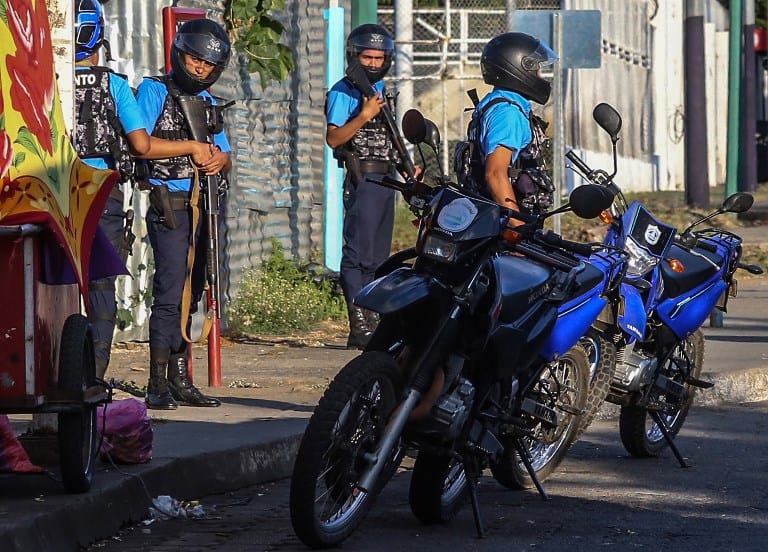Nicaragua has increased its “harassment and retaliation” against exiled journalists and their families who remain in the country, according to a report published Thursday by the NGO Foundation for Freedom of Expression and Democracy (FLED). The document also states that the murder of former Nicaraguan military officer Roberto Samcam, committed on June 19 in San José, has alarmed exiled journalists in Costa Rica, who now fear becoming targets of attacks ordered from Managua.
“The government of Daniel Ortega and Rosario Murillo intensified its campaign of stigmatization against independent journalism” between April and June, said FLED, which operates from exile in Costa Rica “Forty cases of violations of press freedom were documented,” with a significant concentration in June, the NGO said in its report, titled “Nicaraguan Government Intensifies Harassment and Retaliation Against Families of Exiled Journalists.”
Most of those violations were “verbal, written, and digital attacks” aimed at “intimidating and discrediting independent journalists and media outlets,” the report added. Following Samcam’s murder, some exiled journalists in Costa Rica are now seeking to move to Spain due to a “growing fear that the Nicaraguan government’s surveillance and persecution networks are crossing borders,” according to the NGO.
The report also cites the case of an exiled journalist in the United States who denounced that her family, still in Nicaragua, had been under surveillance by armed civilians linked to the Sandinista party.
FLED also reported an increase in the denial of entry permits to exiles wishing to return to Nicaragua, particularly targeting journalists and content creators. The situation for the press in Nicaragua has worsened since the 2018 protests, which left more than 300 people dead, according to the United Nations. The government claims those protests were part of a coup attempt orchestrated by Washington.
In 2024, Ortega reformed the cybercrime law, increasing penalties and paving the way for people to be convicted over social media posts. Additionally, a constitutional reform established that the State will “monitor” the press and the Church to prevent them from serving “foreign interests.” Since 2018, about fifty independent or critical media outlets have shut down in Nicaragua, and their assets were confiscated, according to Reporters Without Borders (RSF) and other organizations.






